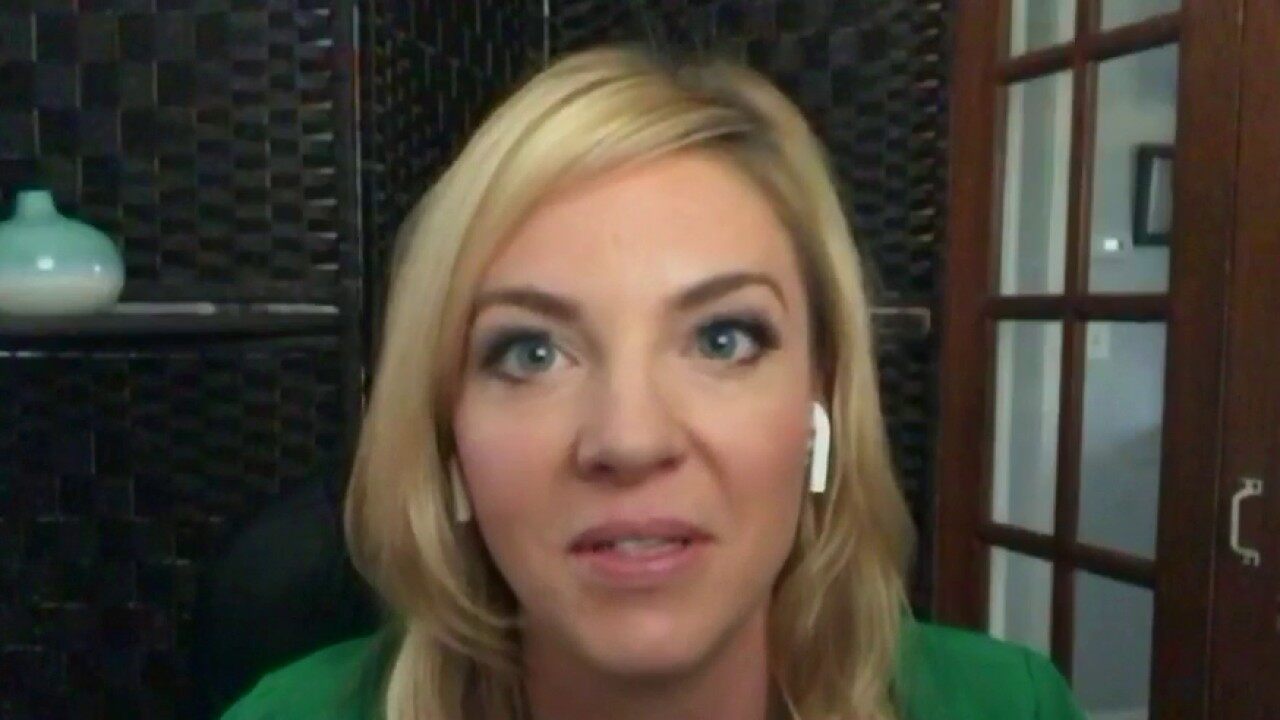Get all the latest news on coronavirus and more delivered daily to your inbox. Sign up here.
Dr. Jessica Griffin, the executive director of UMASS Medical School’s Child Trauma Training Center, joined “Outnumbered Overtime” host Harris Faulkner Tuesday for a virtual town hall answering questions about how families can deal with the stress of working and learning from home during the coronavirus pandemic.
Griffin acknowledged that there are “a number of ways in which we are all being stressed,” including working from home with children in the background.
“We want to try and keep our eye on the prize and the prize is really leaning on one another and our families in order to make us more resilient in the midst of this crisis,” Griffin said.
She explained that “ways in which we can do that are ways in which we can try to grow the connection we have with one another, taking advantage of this time together, whether it’s setting up new routines for the family or family rituals you might have.
“We can reduce stress by exercise, so making sure we’re exercising every day,” she continued. “I’m not talking about running a marathon or anything like that, [but] getting out, moving your body, maybe take a family walk and other ways in which we can try to address stress.”
THE CORONAVIRUS OUTBREAK, STATE-BY-STATE
Question: Are children still able to feel like they are part of a class or part of a school community through online platforms like Zoom?
“When we look at the research on resilience and how we can cope after significant stress or trauma we know that social connectedness is so important and so critical,” Griffin said in response.
She noted that during the coronavirus pandemic “we’re sacrificing social connectedness and sacrificing that emotional health” to “take care of our physical health” and said that is where modalities like Zoom can be helpful.
Griffin noted that currently there isn’t that much research on how children are connecting with their peers through online platforms, though “I’m sure there will be a lot more coming out.
“We do have some research on children being able to use these platforms for learning and staying connected,” Griffin continued. “Just think about kids who are in families where a parent may be deployed overseas. They’re still connecting to that service member, often times through online platforms. Families are still able to stay connected in that way so we just have to think creatively how to help our children stay connected to their peers and their classmates.”
Griffin also acknowledged that “there are some children who don’t have access to the online resources” and said writing a letter may be a good way for them to connect with their classmates during the coronavirus outbreak.
Question: Kids typically get a break from their teachers when they are done learning for the day, but they don’t get a break from their parents. How do we create some of that space as parents for our kids to release from some of the stress and some of those things that they deal with on a school day?
CLICK HERE FOR COMPLETE CORONAVIRUS COVERAGE
“Setting up some sort of a routine in the home, a time for learning and a time for play can be a helpful way to transition kids,” said Griffin before acknowledging that “it’s not always easy.”
“You may have one child who is able to sit there for two hours and do what they need to do academically, and another one where you’re having to stay on them every 5 to 10 minutes and check in and it’s creating stress,” she explained.
Griffin said there are three ways “in which we know children will help to improve their stress levels”: reassurance, routine and regulation, or “The Three Rs.”
She noted that it’s important to “reassure kids that they are safe and that they’re loved and that their parents are doing everything they can for them.”
CLICK HERE TO GET THE FOX NEWS APP
Griffin emphasized that having “some sort of predictable routine” can be helpful. She said that can include, “getting up together in the morning, taking a family walk together, eating meals together, [a] bedtime routine.”
She went on to say that regulation means “really helping kids turn down that stress response that we all have that’s a little over activated right now by doing things that are relaxing for them.”
Griffin suggested taking walks, dancing, listening to music, meditating, and anything that helps children feel calm and more relaxed “will actually help them be able to learn better.”






